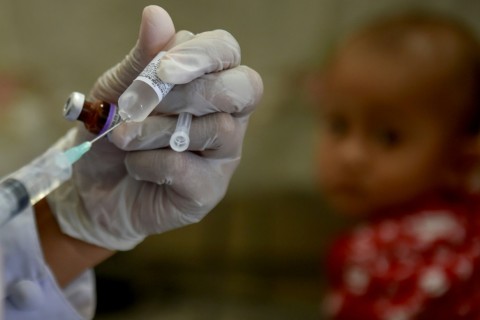Study says mutation can increase viral rate of transmission but “no definitive evidence” carriers are more infectious than others yet
(Eagle News)–A mutated strain of the SARS-CoV-2 virus that causes COVID19 has been found in Quezon City.
The Philippine Genome Center, which conducted a whole genome and targeted sequencing of the SARS-CoV-2 virus in the country as part of the validation study of the locally developed SARS-CoV-2 RT-PCR kit, said in its first advisory that the G614 strain, together with the original D614, has been detected in a small sample of COVID-19 cases in that part of the country.
“Although this information confirms the presence of G614 in the Philippines, we note that all the samples tested were from Quezon City and may not represent the mutational landscape for the whole country,” the PGC said.
According to the PGC, based on an in vitro study, “together with the observation that G614 is now the dominant viral state, the authors claim that the said mutation can increase the viral rate of transmission.”
There is still, however, “no definitive evidence showing that carriers of the G614 variant are actually more transmissible than those with D614,” the PGC said, noting that “the mutation does not appear to substantially affect clinical outcomes as well.”
Nonetheless, the PGC said “continuous monitoring of the mutation — and other frequently observed mutations for that matter – must be done in order to better understand the evolutionary trajectory of SARS-CoV-2 to inform containment, diagnostic, and therapeutic strategies,” considering “the presently wide geographic spread of G614..”
The Philippines has so far confirmed 161,253 COVID-19 cases after it reported an additional 3420 cases on Sunday, Aug. 16.
President Rodrigo Duterte is expected to announce today the quarantine classifications of Metro Manila, Cavite, Laguna, Rizal, Bulacan, which are so far under a modified enhanced community quarantine.
The MECQ is expected to end on Aug. 18.




